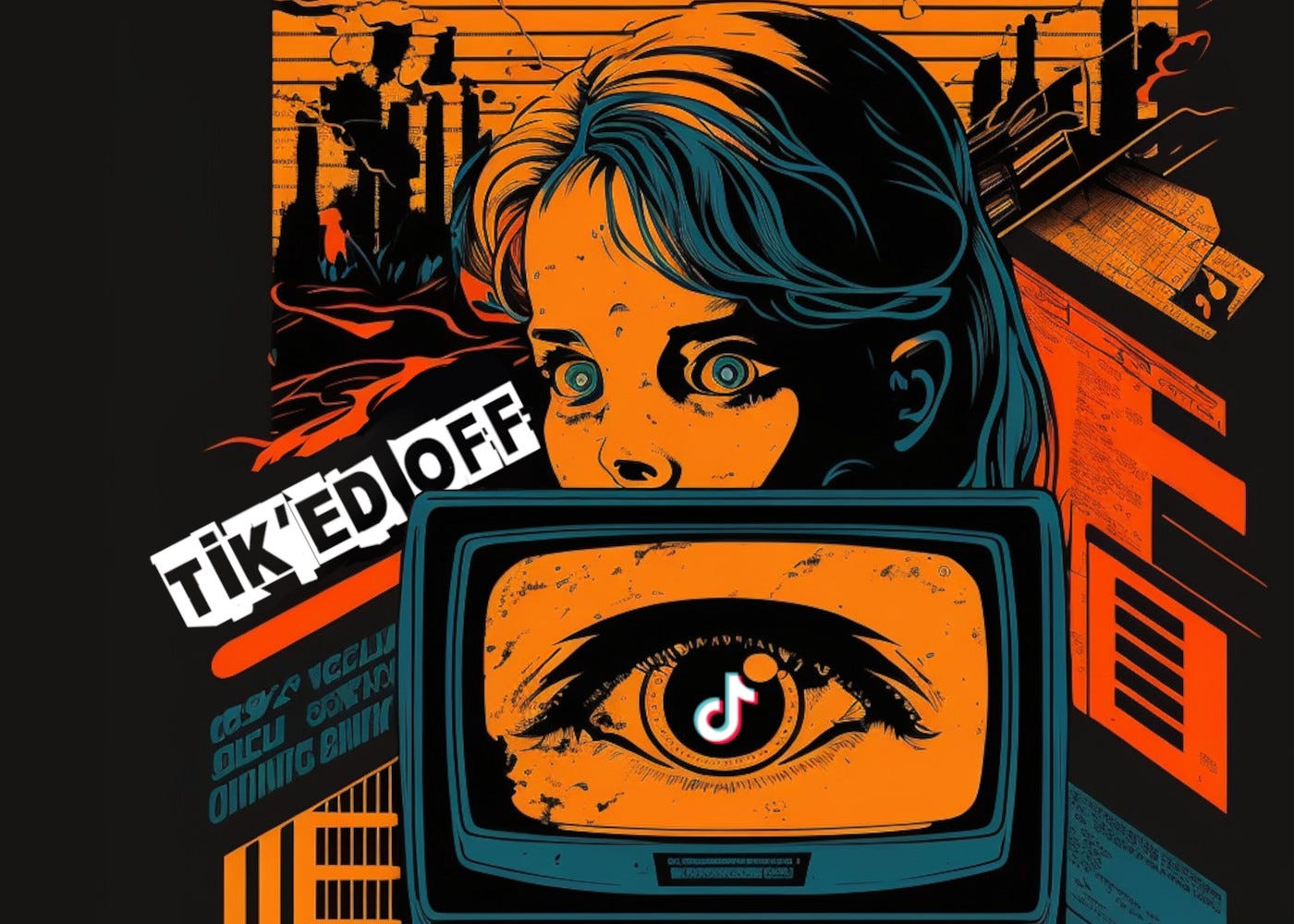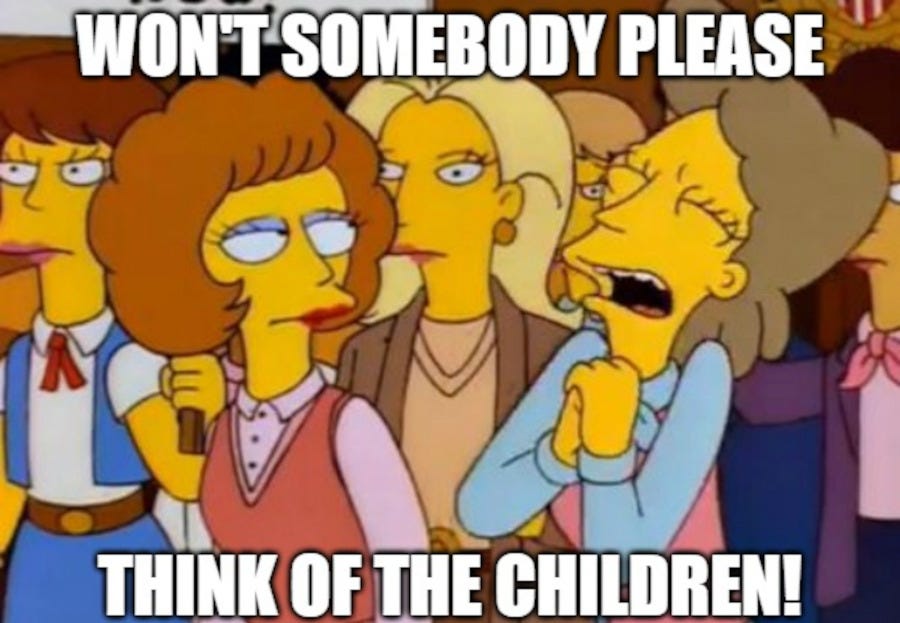Tik‘ed Off – Why the government’s ban of TikTok is an overreach of power

“Good afternoon Tovarishch. This is Vladislav speaking and… oh hold on, I’m so sorry.” Muffled shuffling as a corpulent clergymen of Homeland Security shuffles down the hall to find some reception.
“Can you hear me now? Excellent… Ah, yes. As I was saying, it is my unfortunate duty to inform you that you’ve been logged using TikTok. Are you aware that under current sentencing guidelines you may receive up to 20 years in prison?” A pause, followed by a tentative “hello?” from Vlad.
No response.
Vlad puts his hand over the receiver, beckons to a colleague.
“Send in the tac team, I think he’s running.”
*Little known fact, the word “Comrade” is not translated directly from Russian as many people imagine. Those from the far side of the Iron Curtain say “Tovarishch,” or as written in Russian: “Товарищ.”
Alrighty then, where does my sketch take place? Is it actually Russia, or maybe from Blade Runner? Nahhhh…
My inelegantly written scene is set in good ol’ America and the plot is based on fact not fiction. Allow me to introduce you to Bill S. 686, otherwise ominously known as the RESTRICT Act. This is a lovely bit of legislation currently making its way through the Senate which could assure draconian punishment for a deed which is currently not even a crime. Here’s a few words lifted directly from the bill.
A person who willfully commits, willfully attempts to commit, or willfully conspires to commit, or aids or abets in the commission of an unlawful act described in subsection (a) shall, 2 upon conviction, be fined not more than $1,000,000, or if a natural person, may be imprisoned for not more than 20 years, or both.
Up to 20 years in prison and a $1 million fine for doing, what exactly..? Plotting to overthrow the President or murdering the manager of a Milwaukee McDonald’s? Nope. Using an unapproved VPN or accessing a network that the US government claims is controlled by a “foreign adversary.”
I’m sure you can see the problem here. A “foreign adversary” is just like a “threat to our democracy,” a nebulous concept that policymakers and party apparatchiks can deform into anything that suits their interest. I’m reminded of 1984: “Oceania was at war with Eurasia: therefore Oceania had always been at war with Eurasia.” One year a country is a foreign friend, the next it’s a foreign adversary and you can go to prison for using their software.
To further our understanding of the bill here’s a quote from Coin Center, a non-profit organization dedicated to protecting the digital rights of Americans.
The RESTRICT Act is conceptually similar to the International Emergency Economic Powers Act (IEEPA), the law that empowers OFAC to block Americans from transacting with sanctioned foreign persons. Indeed, the RESTRICT Act would essentially create a parallel sanctions regime administered by the Secretary of Commerce alongside OFAC’s regime (administered by the Treasury Secretary). – We are very concerned that an overbroad interpretation of those powers could be exploited in order to ban Americans from using entire classes of technologies, even when no foreign adversary has an actual proprietary interest in the technology as a whole.
As I was saying, the RESTRICT Act would allow the government to set the definition of a “foreign adversary.” There is not enough oversight to determine who/what should be on that list, and whether the punishment is warranted by the crime. I believe that this bill adds yet another layer of rule by decree, and I’m not convinced we need more of that right now.
Should we ban TikTok?
Whatever abuses may occur in the future, at this juncture the RESTRICT Act is a tool to block Americans from using TikTok. In all honesty, call me a big government lackey but in the ill-defined world of theory I am not vehemently opposed to regulators placing limits on this app.
Social media is, in my opinion, a scourge on the kingdom. I don’t think we should ban social media, but at the very least we should have a dialogue about the damage it inflicts. The algorithms amplify extreme views, encourage us to hate each other and are prone to making us feel shite since we’re carpet-bombed with only the highlights of everyone else’s day.
I’m not the only one to recognize these impacts. In fact the Chinese government feels the same way and they treat the domestic version of TikTok differently than the app that they’ve unleashed on the world. The Chinese version of TikTok is called Douyin and the application has a wide range of content restrictions. Here’s a quote from the MIT Technology Review.
That year [2018], Douyin introduced in-app parental controls, banned underage users from appearing in livestreams, and released a “teenager mode” that only shows whitelisted content, much like YouTube Kids. In 2019, Douyin limited users in teenager mode to 40 minutes per day, accessible only between the hours of 6 a.m. and 10 p.m. Then, in 2021, it made the use of teenager mode mandatory for users under 14. – On the content side of things, Douyin’s teenager mode bans a slew of content types from being shown, including videos of pranks, “superstitions,” or “entertainment venues”—places like dance or karaoke clubs that teenagers are not supposed to enter.
The Chinese recognize the deleterious mental debasement that hours of social media scrolling imposes on an adolescent, and officials have taken steps to limit the mushification of their children’s formative minds. On the more dystopian end the CCP makes sure that their kids can only see “wholesome” content. That’s downright creepy, but it does show that the Chinese are keenly aware of the influence that these applications have on how people think.

In the benign world of theory I support a limit on these shit media protocols, but as I’ve been forced to examine how such a ban might get implemented the situation becomes murky. The RESTRICT Act, which purportedly is about TikTok, looks like the next iteration of the Patriot Act and therefore a guaranteed eroding of the populace’s civil liberties. To that I say no thanks, and while I’d like to see the social media companies get reorganized I absolutely don’t support a government ban as far reaching and opaque as Bill S. 686.

